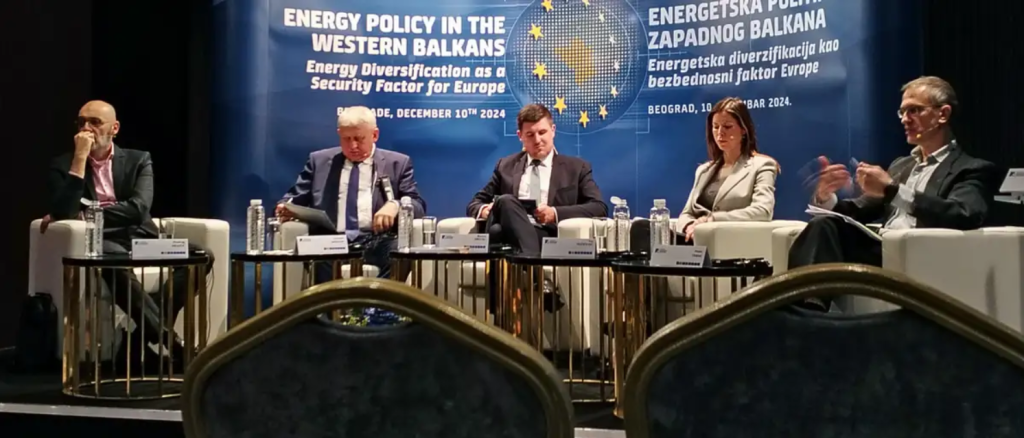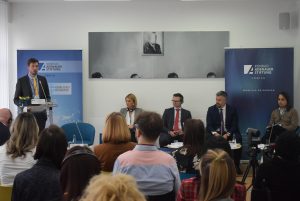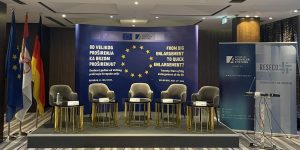To mark the anniversary of the Serbia-Bulgaria Gas Interconnector (IBS) inauguration, RESECO and the Konrad Adenauer Foundation in Belgrade organized a conference titled “Energy Policy in the Western Balkans: Energy Diversification as the Key to a Safer Europe” on December 10, 2024. This event gathered regional and European experts to discuss critical issues related to energy security, transition, and diversification, with a particular focus on the challenges and prospects of the Western Balkans.

The first panel, “Energy Policy in the Light of Geopolitical Challenges: Where Does the EU Debate Stand?”, analyzed the geopolitical challenges of energy policy, including the implications of the war in Ukraine and the adjustment of European countries to new energy suppliers. Discussions emphasized the role of international financial institutions in supporting renewable energy projects.

The second panel, “Energy Transition, Innovation, and Investments in Energy Efficiency: What Is the Current State in the Region?”, focused on the status of energy efficiency in the region’s countries. The discussion highlighted key challenges in the energy transition process, emphasizing the need for better regional market and infrastructure integration. Participants stressed that alongside public sector and international institutional investments, private sector contributions are crucial for ensuring a sustainable energy transition and accelerating the practical application of innovative solutions.

The third panel, “A More Efficient Energy Policy with Updated Legislation: Who Makes the Laws?”, addressed improving legislation and strengthening administrative capacities in the energy sector. Special attention was given to the legislative process, focusing on aligning laws with European Union standards.
Minister for European Integration Tanja Miščević underscored that energy in Serbia is a “political issue due to our dependence on energy sources.” She also highlighted the importance of collaboration with civil society representatives in this field and the need to implement a wide range of measures to enhance energy policy. According to her, although these measures are often complex, their implementation is essential and must be expedited to achieve the set objectives.

The final panel, “Final Destination – Energy Security: What Must Europe Do by 2025?”, featured a discussion with Peter Altmaier, former German Federal Minister for Economic Affairs and Energy. Key challenges and opportunities for achieving energy security and sustainable development were outlined.
The panel concluded that investments in energy infrastructure and compliance with environmental protection standards are vital for the region’s sustainable future. Altmaier emphasized: “As long as the war in Ukraine persists, we have an interest in maintaining the functioning of global trade. A stable and cost-effective supply across Europe requires cross-border flows of conventional, nuclear, and renewable energy.”
The need for intensified cooperation between the European Union, the Western Balkans, and international partners was particularly emphasized to ensure energy independence and achieve sustainable development goals. The panel concluded that joint efforts by all stakeholders are essential to tackling global energy challenges and creating a resilient energy system by 2025.

The conference provided concrete recommendations for further development of the energy sector in the region, including stabilizing the regulatory framework, investing in infrastructure, enhancing energy efficiency, and addressing energy poverty.



